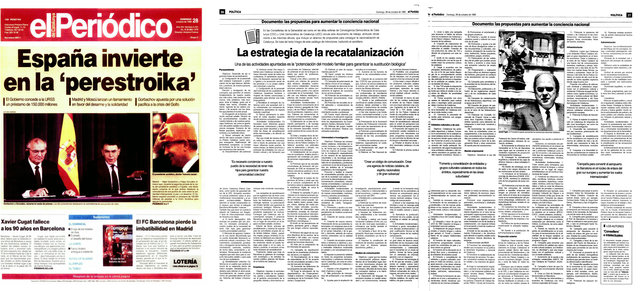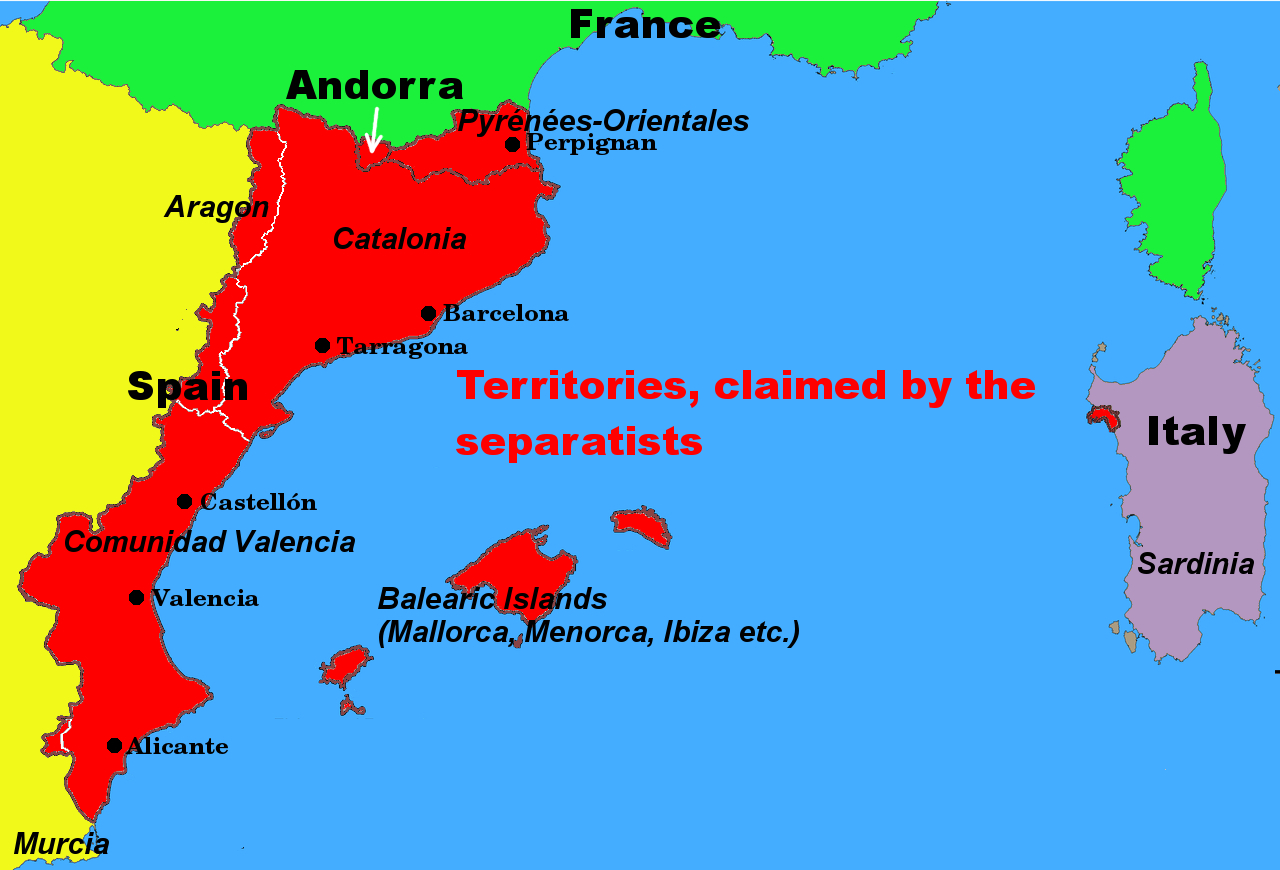What is meant?
The demand for bi- or multilingualism
May 10, 2020
Away from the all-dominant corona theme, the efforts of the separatists have not ceased to sharpen the instrument of language imposition for their minority languages. There is never a lack of justified evidence that bilingualism or multilingualism is beneficial to children's ability to learn.
The question is, what do the separatists understand by bi- or multilingualism?
On 1st April the University of Alicante and the Escola Valenciana signed an agreement to give a new impetus to the dissemination of multilingual education.Footnotes
On October 4, 2018 I reported on this blog for the first time about the Escola Valenciana. It has been supported by the Catalan government with about 2 million Euros since 2005. The aim of the Escola Valenciana, reported Las Provincias at the time, was: „The Escola Valenciana is an association of associations whose social objective is to promote Valenciano and make it the main language in the teaching of the community.“ The newspaper added to this report on 31.10.18 by stating that the Valencian government would add another 75,550 euros for 2018. A short time later, the mayor of Valencia arranged for another injection of taxpayers' money. A flow of money which has not suffered any stagnation since then.
It is only reasonable that taxpayers' money should not only flow to support the Spanish language, but also to support Valencian culture and language, after all this language is spoken by a significant minority in this region. However, the question is probably justified why so much money is flowing from Catalonia for this purpose. How does one deal with bi- or multilingualism there?
Those who follow the news in Spain were not at all surprised by the monolingualism of Catalan (separatist) politicians. Under the headline „Alergia al castellano“ the Catalan e-notícies reported in April, that questions concerning Corona should be answered „en castellano“. They could also have addressed their request to a date palm or a wild bull.
„Hablamos Español“ has been reporting since the beginning of Corona that autonomous governments with a tendency towards separatism spread urgently needed messages sometimes in the respective minority language only. This is as true for Galicia (PP-ruled) as it is for Valencia (PSOE-ruled).
In all the constitutions of the Autonomous Regions, there are articles guaranteeing the bilingualism or multilingualism of Spanish with the regional languages. This guarantee is not given by the separatists. It is time that Valenciano became the vernicluar language in education and that implicitly the constitution were amended, as the Valencian universities are now demanding.
They add to their list of demands: „The public universities of the Autonomous Community of Valencia are asking the Generalitat to pass a new law on 'linguistic equality' which includes 'equivalence with the Catalan name' in addition to the Valencian name used in the Autonomy Statute. In this way, 'by overcoming the inequality of names, we will avoid the State and various public and private institutions treating Valenciano and Catalan as if they were responding to two different linguistic communities'.“
So when we talk about equality, we are talking about equality between Valencian and Catalan. What madness! But it makes it clear, who and what is really behind these demands.
Bi- and multilingualism is indeed supporting the development of our childrens' brains and there is nothing to be said against it. But parents should have the freedom to decide on languages in education. Not the state, not a party and not the separatists who have taken over the regiment in the universities. Separatists do understand bilingualism as not including Spanish. In Spain! Where even in the autonomous regions the majority claims Spanish as their mother tongue.
Parents should also be able to decide in which languages the children are taught. That could be Spanish, English and French. I do not see any need for either Catalan or Valenciano. In a neighborhood with a strong Valenciano influence, the children learn to speak in a way that is suitable for everyday life anyway. Just like Bavarians can learn Plattdeutsch (another German dialect).
Bilingualism and multilingualism have several levels. In Belgium near Aachen (Germany), where I used to live, almost all the cashiers in the supermarkets spoke French, Flemish and German. Fascinating. But I don't know if they were really multilingual apart from their language skills at the cash desk, including the many multilingual names for food etc.
I also know of cases where children here grew up with Spanish, spoke perfect German at home, but didn't really speak German. For example, they never learned to write it. But the parents have to decide about that as well. The public education system just has to make sure that the children have all the options. In Valencia's public schools this would certainly be Spanish or Valenciano[1] or Spanish with Valenciano and with the foreign languages English and French.
[1] Catalonia is trilingual with Aran, this should apply there accordingly
| | | | Click here to subscribe or cancel your subscription |
Myths and deceptions of Catalan nationalism

Here you'll find the translation
The strategy of recatalanization
 1980 the Spanish journal "El Periodico" published a secret document about the strategy of the Catalan government. It shows in a frightening way the actual spiritual world of the separatist leaders.
1980 the Spanish journal "El Periodico" published a secret document about the strategy of the Catalan government. It shows in a frightening way the actual spiritual world of the separatist leaders.Now it is available in english translation.
Pancatalanism
the separatist's imperial claim
 The Catalan government exports the conflict into communities with Catalan population, supporting all efforts of the separatists including financial means to destroy Spain.
The Catalan government exports the conflict into communities with Catalan population, supporting all efforts of the separatists including financial means to destroy Spain. An important tool is the establishment of a language dictatorship that is not afraid to use the same means as Franco.
Separatist indoctrination

Click here to read the study
Language imposition and democracy

An essay in 6 parts on the potentially violent effect of language imposition containing contributions from South Africa, Catalonia, Ukraine and France.
go to part 1
Publications
 The title says: "Catalonia, a conflict is exported. Insights of a migrant"
The title says: "Catalonia, a conflict is exported. Insights of a migrant"Sorry, up to now, this book is only available in German. However, drop us a line, if you are interested to learn more Contact.
